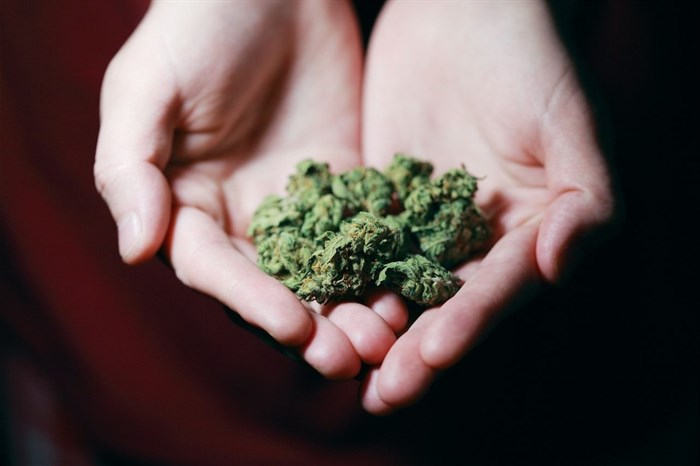In September 2018, the Constitutional Court of South Africa unanimously ruled that the personal and private use of cannabis, by adults, would be decriminalised. This meant that the ban on private possession and consumption, as well as cultivation of cannabis plants for personal use, was unconstitutional and infringed on section 14 of the Constitution, which gives all citizens the right to privacy.

Image source: Alexander Grey from
PexelsIn September 2020, the relevant parliamentary committee published the Cannabis for Private Purposes Bill (the Bill) and following some amendments, the Bill recently passed through the two houses of parliament and is expected to soon be gazetted by the President into law. This echoes the President’s statement in his 2022 State of the Nation Address of the “huge potential for investment and job creation” offered by the cannabis industry.
The Bill creates a tiered list of offences, depending on the quantity of cannabis or severity of the offence, and further distinguishes between cultivation and possession which exceed personal use, and defines smoking and consumption offences.
Cultivation
Regarding cultivation, an adult is entitled to cultivate four flowering plants in a private place and up to eight plants if more than one adult resides in that dwelling. A guardian of a minor must reasonably restrict access to the plants but is allowed to have the child assist in the legal cultivation thereof for private use, in the presence and supervision of the guardian.
A person may not provide for consideration, receive for consideration, buy, sell, offer to purchase, advertise for sale, import, export or any other conduct facilitating selling (referred to as “deal in” in the Bill) of a plant. An individual is, however, allowed to exchange without consideration (meaning any form of compensation, gift, reward, favour or benefit) one or more plants to another individual (which may not exceed the above limit) and if in a public place, which means spaces which the public has the right of access, the plant must be concealed from public view.
Possession
Regarding possession, an adult is entitled to possess, in a public place, up to 500g of fresh cannabis, 100g of dried cannabis, and 25g of solid or liquid cannabis concentrate. In a private place, an individual is entitled to possess up to 3kg of fresh cannabis, 600g of dried cannabis, and 150g of solid or liquid cannabis concentrate.
These amounts increase to 6kg of fresh cannabis, 1.2kg of dried cannabis, and 300g of solid or liquid cannabis concentrate, if more than one adult resides in a dwelling. Again, a person has a duty to ensure the cannabis is not accessible to children, may not deal in cannabis but may freely exchange without consideration amounts which do not exceed the above limits, which must also be concealed if in a public place.
Smoking and consumption
It should be emphasised that the Bill still prohibits cannabis from being smoked or consumed in a public place or smoked in a private place in the immediate presence of a non-consenting adult, with failure to comply attracting a fine and/or imprisonment not exceeding two years. It may also not be smoked or consumed in a vehicle on a public road or smoked in the immediate presence of a minor, with failure to comply resulting in a fine and/or imprisonment not exceeding four years.
Furthermore, a person may not smoke cannabis in a private place which is in close proximity to another’s window, ventilation inlet, doorway or entrance, or in close proximity to a public place where the smoke is likely to cause a hinderance, which may need consideration if the person lives in an apartment complex, also attracting a fine and/or imprisonment not exceeding two years.
Protection
Thankfully, the Bill provides special protections for minors in particular, and sanctions the highest penalty of a fine and/or imprisonment of up to 15 years for a number of offences. Interestingly, the Bill includes the automatic expungement of criminal records for people that have been previously convicted of cannabis-related offences under other Acts of Parliament, unless that individual does not qualify, which disqualification is also able to be challenged in terms of the Bill.
Medicinal regulation
The Bill does not, however, apply to any person who is permitted or authorised in terms of any other Act of Parliament to cultivate cannabis and/or deal in cannabis or cannabis products. In this regard, the Medicines and Related Substances (MRS) Act has already been formally amended in that the whole plant, together with its constituents, is no longer classed as falling in Schedule 7. Schedule 7 drugs are substances not recognised as medicine and which have a high potential for abuse and relate to the two main cannabinoids, non-psychoactive cannabidiol (CBD) and psychoactive Tetrahydrocannabinol (THC).
CBD is now amended as a Schedule 4 regulated substance. Products that contain up to 600mg of CBD in total, recommend a daily dose of no more than 20mg and make no specific health claims, are exempt and classed as Schedule 0, which is unregulated, over-the-counter medicines. Furthermore, products intended for ingestion, where the plant source material naturally contains a maximum of 0.0075% CBD in total, are also exempt and fall under Section 0. THC is now a Schedule 6 regulated substance, except if the raw plant or its derivatives are cultivated, possessed, shared or consumed by an adult, in private and out of sight, in line with the Bill.
Rodney Africa, Adriano Esterhuizen, Daveraj Sauls, Andre Crouse and Danica Jonker 6 Oct 2023 Licence requirements
The cultivation of cannabis for medicinal purposes on a commercial basis requires a licence issued in terms of the MRS Act, the licence is issued by South African Health Products Regulatory Authority (Sahpra). A permit from the Director-General is also required. The application forms for the licence and permits can be accessed online via the Sahpra website or by contacting the Regulatory Compliance unit of Sahpra.
Schedule 6 substances of the MRS Act, however, are not able to be sold by any person other than a pharmacist, pharmacist intern or a pharmacist’s assistant acting under the personal supervision of a pharmacist, without a prescription. This seemingly begs the question in our law on how Cannabis produced on a commercial scale for private use would get into the hands of a private individual in line with the Bill, without having to grow their own plants. Currently, an individual would approach a health practitioner who, after assessment of the patient would determine whether to prescribe Cannabis for treatment, and thereafter a pharmacist would distribute the product to the patient.
Grow clubs
It is also interesting to consider the status of “grow clubs” which have mushroomed in the legal uncertainty since the Constitutional judgment and may consider themselves compliant with the Bill. These clubs may believe that they are providing a private place for individuals to grow each of their individual allocation of cultivated plants in terms of the Bill, and so the club may collectively possess amounts which exceed the limits set by the Bill in terms of a single private place.
In order for this argument to be sustained, the club will need to find support that the cultivation and possession of an individual is able to be delegated or mandated to them in terms of the Bill. This may also circumvent the need to obtain a licence and permit as mentioned above, along with the need for a prescription. Invariably, this will need to be settled through the Courts.
The Bill is a welcome inclusion to the legal framework of the South African cannabis industry, bringing it in line with the Constitutional judgment but further legislation relating to commercial production for private use to enjoy the privileges offered by the Bill seem necessary.














































